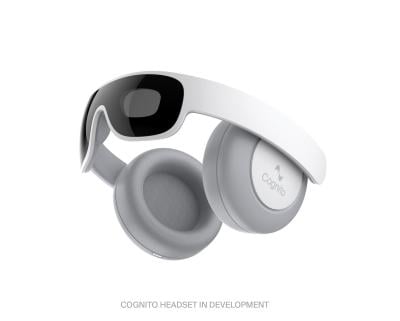As it plows ahead in its efforts to secure an FDA greenlight for its light- and sound-based neuromodulation device to treat Alzheimer’s disease, Cognito Therapeutics is taking an even closer look at the technology.
Cognito began enrolling participants last year in its Hope study, a phase 3 pivotal trial that’s currently slated to wrap up in 2025, after which the results will be sent off to the FDA for review. In the meantime, the company has now tacked on a substudy to the trial, with an aim of uncovering a better understanding of the patients and disease types most likely to respond to Cognito’s therapy.
The former Fierce 15 honoree has already enrolled the first participant in the biomarker-focused substudy, it announced Tuesday.
Ralph Kern, M.D., the company’s chief medical officer, called that first enrollment “a clinical milestone for our company,” adding, “We are on track to achieve study completion within our projected timelines, with over 240 patients currently enrolled in the HOPE study across 60 active sites across the US. … We are well-positioned to achieve our study timeline goals, as we advance towards potential approval of the first non-pharmacologic disease-modifying therapy for Alzheimer’s Disease.”
Cognito’s technology comprises a connected pair of sunglasses and headphones that send out gamma-frequency light and sounds. The flashing signals are designed to stimulate gamma oscillations in the brain, activating immune cells and promoting stronger connections between various areas of the brain to potentially pause or reverse the neurodegeneration associated with Alzheimer’s and other diseases.

The Hope study will task upwards of 400 people with mild to moderate Alzheimer’s with using the noninvasive device at home every day for 12 months, throughout which they’ll undergo a series of assessments to determine whether the technology helps to slow or stop the progression of the disease.
The newly launched biomarker substudy, meanwhile, will add in evaluations of certain MRI, cerebrospinal fluid and plasma biomarkers, in hopes of singling out certain biological qualities that may make a patient more susceptible to Cognito’s gamma-frequency therapy.
In addition, Cognito said in Tuesday’s announcement that it plans to use the biomarker analyses to look for indicators of Alzheimer’s progression and to spot new disease areas that may also respond to the treatment.
The light- and sound-based therapy—which earned the FDA’s breakthrough designation in early 2021—has fared well in previous studies.
Just last month, Cognito published an analysis of MRI data collected in the phase 2 Overture study, which spanned six months. After that period, those in the placebo group saw their cerebral white matter volume continue to decline, with an average decrease of 2.54%, while those using Cognito’s headset saw their white matter volume increase by an average of 0.17%.
The study also looked at myelin content, which also typically decreases with Alzheimer’s progression. After six months, the placebo group saw their myelin levels drop by more than 6%, compared to a decline of just 1.42% for the Cognito users.